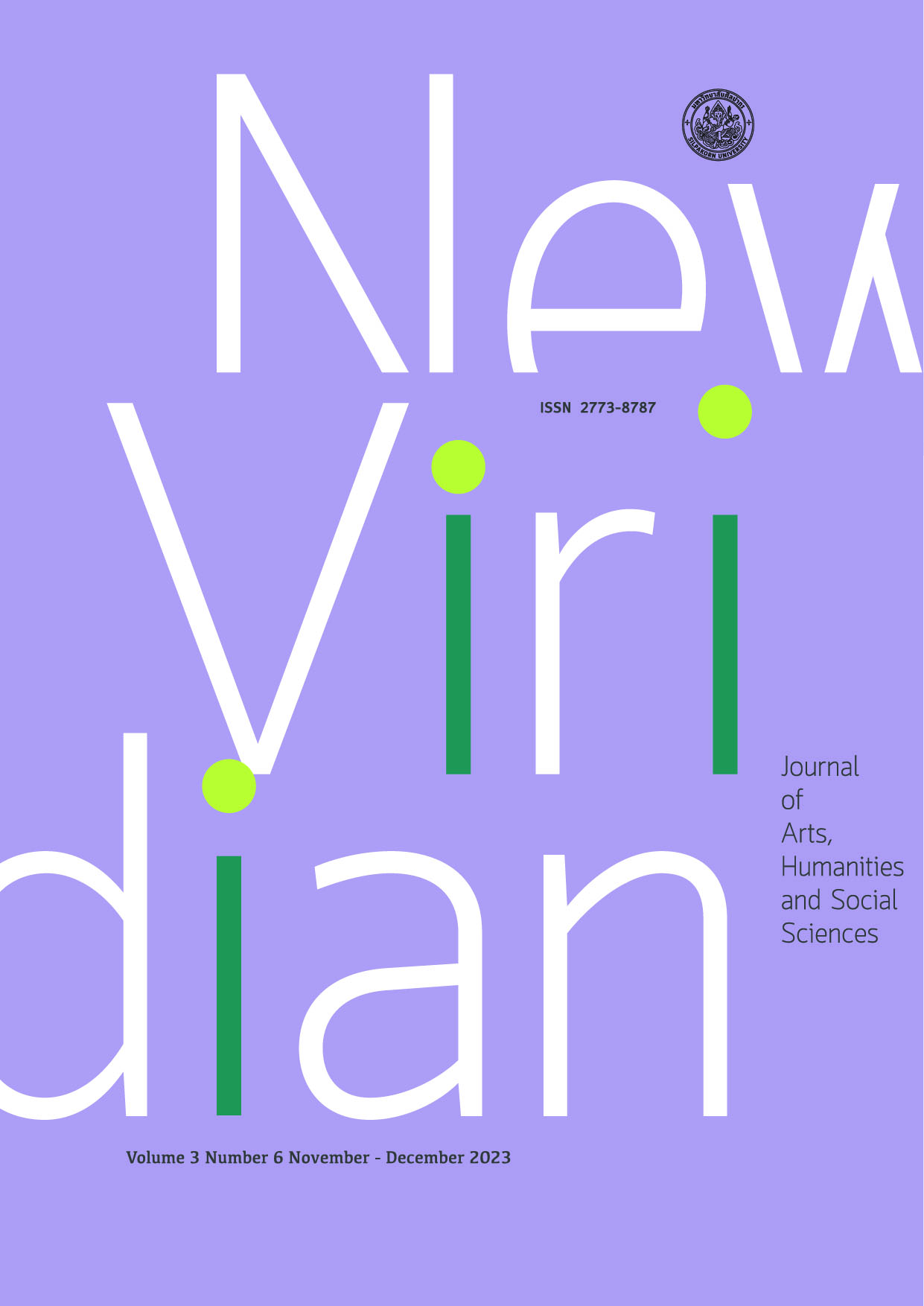เด็กปฐมวัยในยุค Next Normal กับกิจกรรมงานสวน (Young Children in the Next Normal Era with Gardening Activities)
Keywords:
Young children, Next normal, Gardening activitiesAbstract
The Next Normal Era is a trend or direction of change with three trends: 1) stay-at-home economies; 2) touchless societies; and 3) regenerative organics. The trend or direction of those changes affects communication, work, and learning around the world. Young children need to change the way they learn. Teaching activities are one of the learning methods that correspond to the Next Normal era. This encourages children to learn how to be friends with the land and save the world in a simple way so that they can learn about safety and environmental impacts by using cooperation between homes and schools and integrating technology into gardening activities.
References
Equitable Education Research Institute (EEFI). (2022). Learning Loss (ภาวะการเรียนรู้ถดถอย). [Online]. Retrieved September 12, 2023 from https://research.eef.or.th/learning-loss-recession/
Junsrithong, Panus. (2022). The Next Normal and Education (ชีวิตวิถีถัดไปกับการศึกษา). Education journal Faculty of Education, Nakhon Sawan Rajabhat University, 5(3): 25-36.
Larson, N. (2015). Teaching in Nature's Classroom: Core Principles of Garden-Based Education. [Online]. Retrieved November 1, 2022 from https://gardentower2.ca/wp-content/uploads/2016/12/TeachinginNaturesClassroom_print.pdf
Nateetanon, Suchada. (2007). The Effect of Active Learning Environment on Creative Thinking of Preschool Children (ผลการจัดประสบการณ์แบบปฏิบัติจริงที่มีต่อความคิดสร้างสรรค์ของเด็กปฐมวัย). Master’s dissertation, Srinakharinwirot University, Bangkok, Thailand.
Office of Knowledge Management and Development. (2021). Get to Know 3 Lifestyle Trends from New Normal to Next Normal (มาทำความรู้จัก 3 เทรนด์การใช้ชีวิต จาก New Normal สู่ Next Normal). [Online]. Retrieved November 1, 2022 from https://www.okmd.or.th/okmd-kratooktomkit/4164/
Office of the Basic Education Commission, Ministry of Education. (2017). The Early Childhood Curriculum B.E. 2560 (หลักสูตรการศึกษาปฐมวัย พุทธศักราช 2560). [Online]. Retrieved November 6, 2022 from https://academic.obec.go.th/web/document/view/138
Office of the Basic Education Commission, Ministry of Education. (2020). Guidelines for Promoting the Development of Children Aged 3-6 Years for Parents and Guardians (แนวทางการส่งเสริมพัฒนาการเด็กวัย 3-6 ปี สำหรับพ่อแม่ ผู้ปกครอง). [Online]. Retrieved November 6, 2022 from https://academic.obec.go.th/web/document/view/140
Phunboonmee, Seksan. (n.d.). Digital Transformation from New Normal to Next Normal (Digital Transformation จาก New Normal สู่ Next Normal). Digital Economy Promotion Agency. [Online]. Retrieved November 5, 2022 from https://www.depa.or.th/th/article-view/digital-transformation-new-normal-next-normal
Saifah, Sawee. (2020). Re-Conceptualized Elementary Education: Changing Concepts for Teachers, Administrators and Stakeholders (การประถมศึกษาภิวัตน์: มโนทัศน์ที่เปลี่ยนไปสำหรับครู ผู้บริหาร และผู้เกี่ยวข้อง). In S. Rujopakarn (Ed.), Science Teach Media Happy (ศาสตร์ สอน สื่อ สุข), (pp. 27-48). Bangkok: Chulalongkorn University Press.
Sherman, S. J., & Sherman, R. S. (2004). Science and Science Teaching: Methods for Integrating Technology in Elementary and Middle Schools (2nd ed.). Boston, MA: Houghton Mifflin Company.
Stoecklin, V. L. (2001). Developmentally Appropriate Gardening for Young Children. [Online]. Retrieved November 7, 2022 from https://files.eric.ed.gov/fulltext/ED472539.pdf
The Royal Institute. (2012). Educational Vocabulary (พจนานุกรมศัพท์ศึกษาศาสตร์: ฉบับราชบัณฑิตยสถาน). Bangkok: The Royal Institute of Thailand.
U.S. Department of Education. (2002). Helping Your Preschool Child with Activities for Children from Infancy through Age 5. [Online]. Retrieved November 7, 2022 from https://play.google.com/books/reader?id=OTNdbJYItBgC&pg=GBS.PP2&hl=th


